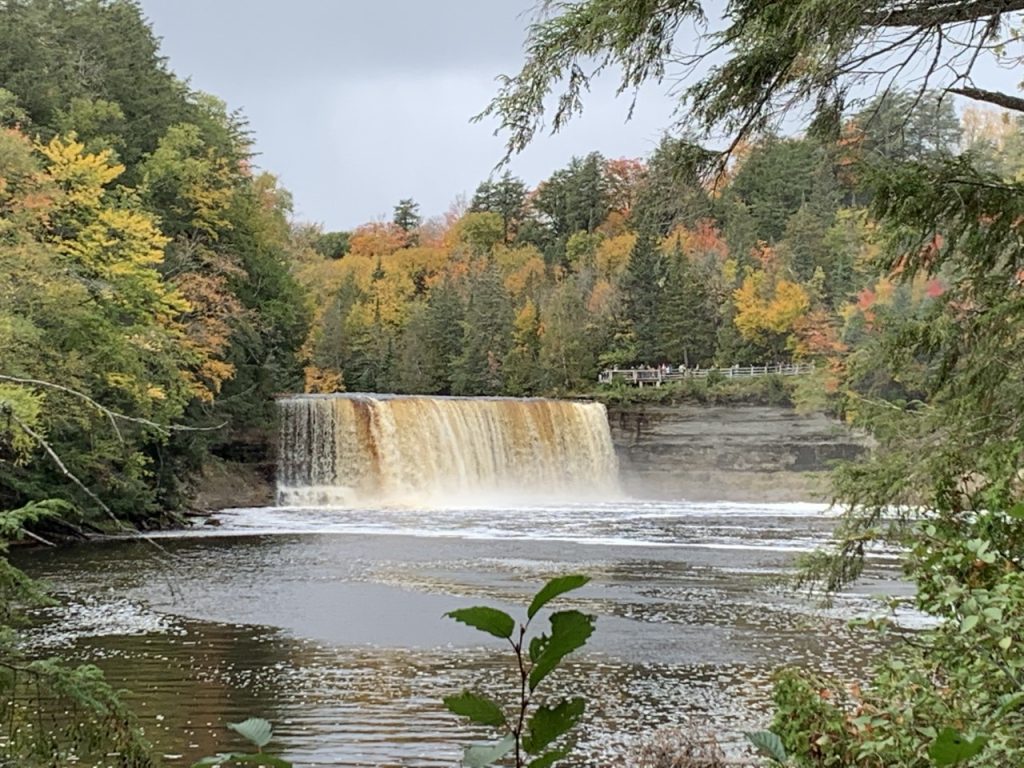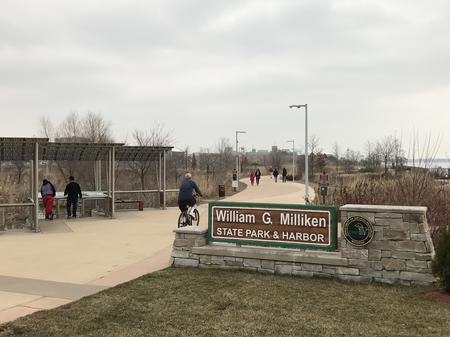Michigan Proposal 1: A Voter’s Guide to Park Funding
The ballot proposal affects two environmental funds governed by state law. If approved, more funds from fossil fuel revenue will go to parks facility maintenance. Opponents say it could harm conservation and fossil fuel elimination efforts.

Correction: An earlier version of this story incorrectly listed the Michigan Environmental Council and Nature Conservancy of Michigan as opponents of Proposal 1. Both support the measure. We apologize for the error. — PB
Michigan voters will decide on Nov. 3 whether to let the state spend more money developing recreational facilities.
Proposal 1 would amend two funds that support state parks and preserve sensitive land.
A “yes” vote on Proposal 1 would adjust how the funds’ revenues are spent. A “no” vote would keep the funds as they are.
Here’s how the question appears on the ballot.
Metro Detroit: Local Issues On Your Ballot In November 2020
The Michigan Natural Resources Trust Fund provides grants to local governments to buy land for recreation and conservation. The State Parks Endowment Fund does just what it says—funds state parks. Both collect royalties from the sale or lease of state-owned oil, gas and mineral rights. The Michigan Oil and Gas Association, which supports Proposal 1, says the industry has contributed more than a billion dollars to the funds since they were established.

By law, at least 25% of the Natural Resources Trust Fund’s annual spending must go toward land purchases. But no more than 25% can be spent on development or renovation of facilities. Proposal 1 would ensure both get at least 25 percent, effectively raising funding levels for facility renovation.
That change has been a subject of debate among some conservationists.
Supporters include the Michigan Environmental Council, the Nature Conservancy of Michigan, Detroit Greenways Coalition, Ducks Unlimited, the Michigan League of Conservation Voters, the Natural Resources Defense Council and the Michigan Farm Bureau.
Opponents include the Sierra Club of Michigan, Green Party of Michigan, The Michigan Land Conservancy, the Michigan Democratic Party Environmental Caucus and the North Oakland Democratic Club.
Click the player to hear WDET’s Pat Batcheller explain the pros and cons of Proposal 1
Supporters say voting yes would give the Natural Resources Trust Fund’s board greater discretion to allocate grants for land acquisition and development of recreational facilities. Conan Smith is the president and CEO of the Michigan Environmental Council. He says people would benefit from new or better facilities.
“Now those are things like building trails or establishing playgrounds or marinas,” he says.
“Proposal 1 really helps us ensure that everybody across the state has access—equal access—to recreational opportunites.” — Michigan Environmental Council CEO Conan Smith.
Smith’s organization is one of several conservation groups supporting Proposal 1. The Nature Conservancy of Michigan has donated more than $500,000 dollars to the Vote Yes for MI Water Wildlife & Parks campaign. Rich Bowman is the Nature Conservancy’s policy director. He says the ballot measure would also require the State Parks Endowment Fund to spend at least 20% of its budget on capital improvements.
“We have places where we have outdated shower buildings that may not be universally accessible,” Bowman says. “Or as people have started to use larger campers, the electric service that we have at some parks is not necessarily adequate. Upgrading those kinds of things is really helpful.”
On that point, many of Proposal 1’s critics agree. But they say changing the Natural Resources Trust Fund’s formula to allow more funding for development will mean less money to buy land.

Jack Smiley is the president of the Michigan Land Conservancy, a nonprofit based in Superior Township (listed in IRS records as the Michigan Environmental Land Conservancy). He says Proposal 1 would also undermine the original purpose of the Natural Resources Trust Fund.
“When the Natural Resources Trust Fund was established, it was to compensate for the loss of natural resources,” Smiley says. “And that compensation was to buy land for public benefit. Future generations won’t be able to benefit from the resources that are extracted. So this is a way to make sure there will be perpetual benefits.”
Smiley and other Proposal 1 critics say when those non-renewable energy resources run out, eventually revenue they put into the funds will, too.
“We shouldn’t be making oil and gas drilling and sales decisions based upon whether or not we need the money for a visitors’ center.” — Marvin Roberson, forest ecologist for the Sierra Club of Michigan.
But the costs will remain. Sierra Club forest ecologist Marvin Roberson says using a finite funding source to pay for ongoing expenses such as operation and maintenance creates a vicious circle.
“Now you’ve got a demand for funding placed upon a non-renewable resource,” Roberson says. “And we shouldn’t be making oil and gas drilling and sales decisions based upon whether or not we need the money for a visitors’ center.”
But even if oil and gas royalties do dry up, supporters of Proposal 1 say the trust fund won’t. Conan Smith of the Michigan Environmental Council says the revenue is invested and earns interest, and as long as that interest grows, the fund will always have some money in it. Right now, the Natural Resources Trust Fund is capped at $500 million. If Proposal 1 passes, that cap would be lifted when the State Parks Endowment Fund reaches $800 million. All future oil, gas and mineral development revenues would go into the NRTF.
But that could take two or three decades, according to the Sierra Club’s Marvin Roberson. He says the imminent threat of climate change — and the fossil fuel industry’s contribution to it — makes preserving land now urgent.
Trusted, accurate, up-to-date
WDET is here to keep you informed on essential information, news and resources related to COVID-19.
This is a stressful, insecure time for many. So it’s more important than ever for you, our listeners and readers, who are able to donate to keep supporting WDET’s mission. Please make a gift today.
